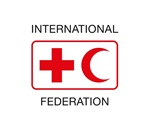A platform for engagement and coordination for groups of interconnected National Societies on migration-related issues.
The Migration Network Platform for European Red Cross Cooperation on Refugees, Asylum Seekers and Migrants (PERCO) was launched in 1997 to promote coordination between European National Societies to improve the situation of refugees, asylum seekers and migrants in Europe. This is achieved through information-sharing, peer-to-peer capacity development around migration, and the development of joint actions that contribute to the development of knowledge on migration. The Asia Pacific Migration Network (APMN) was established in December 2012 by 17 National Societies with similar goals to PERCO. The Network writes papers and is mapping information, key programmes, services, and initiatives currently adopted by Movement actors in the region. An annual meeting was held April 2016 with 18 participating National Societies, the IFRC and the ICRC to discuss the needs and vulnerabilities of migrants. The Migration Working Group of the Americas and Caribbean was similarly formed to improve information-sharing and coordination on issues concerning migration in the Americas and Caribbean. Migration focal points from 17 of the 35 National Societies in the region have participated in the group which holds bi-monthly teleconferences and annual meetings, where the ICRC is an observer. The network shares information on changes in migratory trails, repatriation, funding, and civil society, among others. They also share data and information on regulatory changes that could be helpful for partner Societies. To set up, lessons were sought and applied from the APMN and PERCO. The Migration Network for Central Asian Societies also exists informally with similar goals.
- There is a lack of funding to support migration networks among National Red Cross and Red Crescent Societies; for example, the American Migration Network lacks funding to fully operate for 2016.
- The lack of a regional migration focal point has made it difficult to manage and coordinate regional migration networks.
- Most national level focal points are also responsible for other areas so are not fully able to dedicate their time to participate optimally in the migration networks.
Drawing from the experiences of other migration networks provides valuable ideas and solutions to problems being faced in different regions. For example the American Migration Network learned some mechanisms for response from the Asia-Pacific Migration Network.

